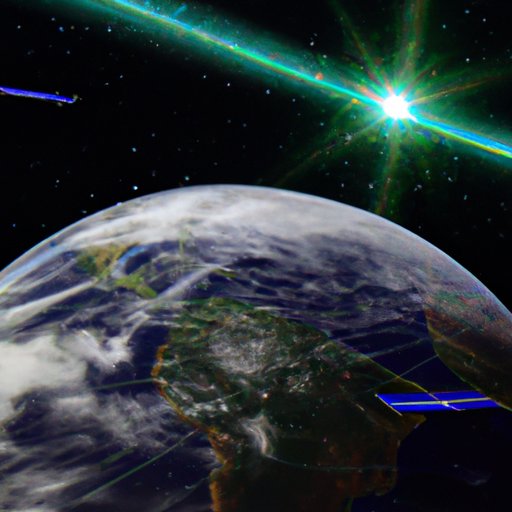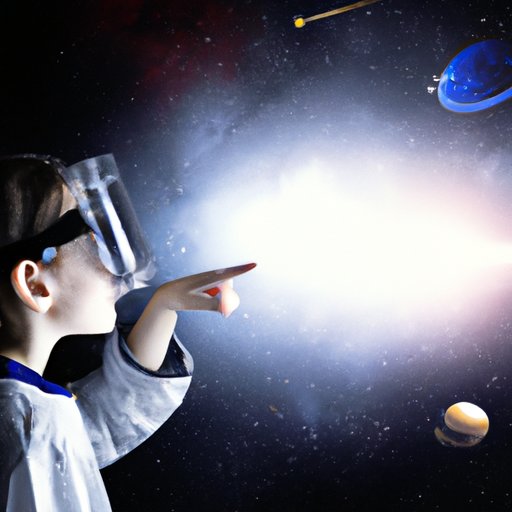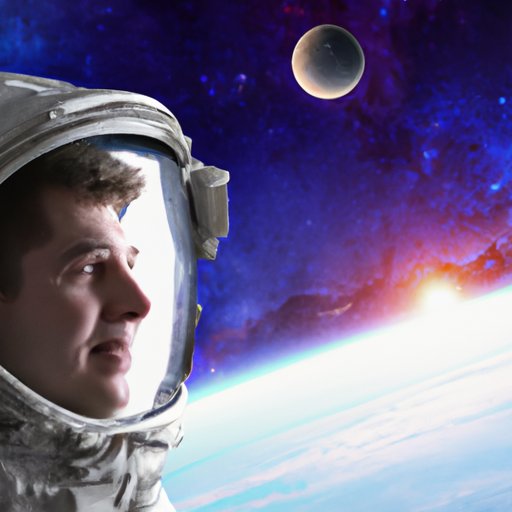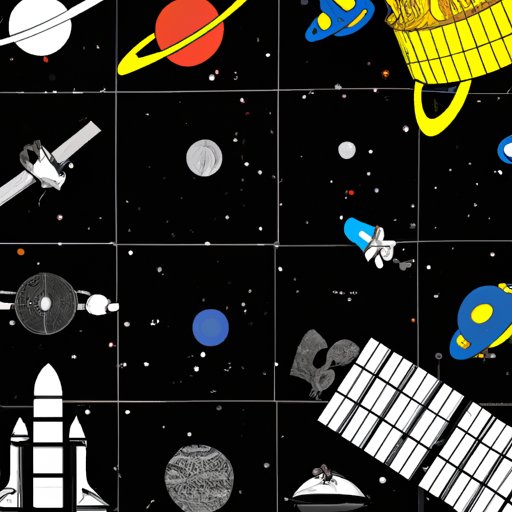Introduction
Space science is an interdisciplinary field of study that focuses on the exploration and understanding of outer space. It encompasses a wide range of topics, such as astronomy, astrophysics, cosmology, planetary science, and space exploration. The purpose of this article is to explore what space science is and how it can help us understand the mysteries of the universe.
Exploring the Mysteries of Space Science
The universe is a vast expanse of unknowns, from black holes and nebulae to distant galaxies and distant planets. The study of space science seeks to uncover the secrets of the universe. It is an ever-evolving field of research, with new discoveries being made every day. By studying space science, we can gain insight into the nature of the universe and its origins.
The benefits of studying space science are numerous. It helps us better understand our place in the universe, our relationship with other celestial bodies, and how the universe works. Space science also provides us with valuable information about the evolution of the universe and how the various components interact with one another. In addition, it can help us identify potential sources of energy and uncover new frontiers in space exploration.
A Brief History of Space Science
Space science has existed since ancient times. Astronomers from Ancient Greece and China studied the stars and planets and sought to understand their movements and behavior. As time progressed, more advanced telescopes were developed and scientists began to make new discoveries about the universe. This led to further advances in space exploration and the development of new technologies.
Some of the pioneers in space exploration include Galileo Galilei, Johannes Kepler, and Isaac Newton. These individuals made significant contributions to our understanding of the universe and paved the way for future generations of astronomers and astrophysicists. Their work helped to shape the field of space science and opened up new possibilities for exploration.

The Impact of Space Science on Our Lives
Space science has had a profound impact on our lives. Advances in technology have enabled us to explore the universe in ways that were previously unimaginable. We now have access to powerful telescopes and sophisticated satellites that allow us to observe distant galaxies and planets. This has given us a greater understanding of the universe and our place within it.
In addition, space science has enabled us to understand the complexities of the universe and how its various components interact with one another. By studying space science, we can gain insight into the formation of stars and galaxies, the evolution of the universe, and the existence of life beyond our own planet.

Exploring the Possibilities of Space Exploration
Space exploration has the potential to open up new sources of energy and expand our knowledge of the universe. Scientists are currently exploring the possibility of using solar energy to power spacecraft and other devices. They are also investigating the possibility of terraforming planets and moons in order to make them hospitable for human habitation.
In addition, space exploration has the potential to uncover new frontiers in science and technology. By studying distant galaxies, scientists can learn more about the origin and evolution of the universe. They can also search for habitable planets and uncover the secrets of the universe.
How Space Science Can Help Us Understand the Universe
Space science can provide us with valuable information about the universe. By studying astronomy and astrophysics, we can gain insight into the formation and evolution of stars and galaxies. We can also use space-based instruments to investigate distant objects, such as asteroids and comets, and uncover the secrets of the universe.
In addition, space science can help us understand the structure and composition of the universe. By studying the light emitted by distant objects, we can learn more about the structure of the universe and its various components. This knowledge can be used to develop new theories about the universe and its origins.

Exploring New Frontiers in Space Science
Space science is constantly evolving and new discoveries are being made all the time. Scientists are continuing to explore the possibilities of space exploration and uncovering the secrets of the universe. They are searching for new sources of energy and exploring the possibility of terraforming planets and moons to make them hospitable for human habitation.
In addition, scientists are investigating the possibility of discovering life beyond our own planet. They are exploring distant galaxies and studying the light emitted by distant objects in order to uncover the secrets of the universe.
Conclusion
Space science is a rapidly growing field that is uncovering the secrets of the universe. From ancient times to today, space exploration has been used to advance human knowledge and understanding of the universe. Space science can provide us with valuable information about the universe, its formation and evolution, and its various components. In addition, space exploration has the potential to open up new sources of energy and expand our knowledge of the universe. The possibilities of space exploration are endless and the future of space science is sure to be an exciting one.
(Note: Is this article not meeting your expectations? Do you have knowledge or insights to share? Unlock new opportunities and expand your reach by joining our authors team. Click Registration to join us and share your expertise with our readers.)
